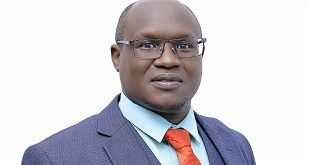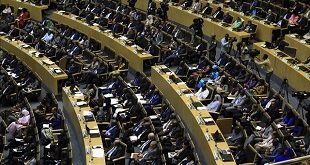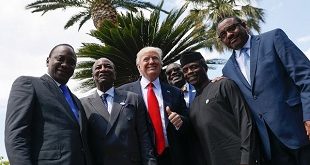
By Pearl Natamba
The ugly training ground for future leaders is not about to change
Makerere University Students Guild elections are a big, boisterous, binge that often overflows onto the streets of Kampala city. Friday March 9 was typical. The winner of this year’s race, Ivan Kata, had just been announced when his joyous supporters swung through the campus gates onto the neighbouring Wandegeya suburb.
“Kata, kata, kata …” they chanted in a victory parade which apparently was heading to the city centre, never mind that it was just a few minutes to midnight. Fortunately, some will say, the riot police moved and halted the throng.
Handsome, well groomed, and eloquent, Ivan Kata, was a strong contender. Many students who spoke to The independent swore he would win even before the election results were announced at 7pm. He had drawn some of the biggest crowds during the campaign. But there is another reason for his win. He campaigned on the ticket of the national Democratic Party (DP) which is very popular among students from central Uganda who are the majority at Makerere.

Other universities, like the Uganda Christian University in Mukono, enforce a strict ban on campaigning in national party colours during their students’ elections. Makerere University has attempted to introduce the ban but failed miserably.
Some candidates like, Ivan Nankunda, attempted to campaign as independents without affiliation to any political party.
“I believe as students of the university, we were nominated as students, not political parties, “he told The Independent as the campaign raged, “I think the University deserves a Guild President who will be able to connect more with Makerere University students and the government without any political party affiliation.”
In this election, there were six independent candidates; Acleo Kansiime, Frank, Kayombya , Genesis Akampwera, Paul Kigongo, Nathan Kintu, and and Nankunda.
But they drew little support. Kata of DP emerged the best with 4,932 votes. He was followed by John Paul Rubagumya of the Forum for Democratic Change (FDC), with 1,952 votes and Nahurira Joshua (NRM) with 1,400 votes.
The contest was between eleven candidates but the best independent candidate, Genesis Akampwera, emerged fifth in spite of being the most articulate, according some of the students interviewed.
Political parties wield a lot of influence because most students at Makerere have just attained the national voting age, above 18 years, and are excited about national political parties. Most are left-leaning radical opposed to incumbency which explains why the ruling NRM party is often a loser despite its heavy investment in influence and money.
The recent trend of the campaigns being heavily monetized is a major factor. Guild campaign candidates are expected to dress up, drive fancy cars, and are accompanied by a column of equally ostentatious looking vehicles as they move from hall to hall to campaign. They are expected to provide music at the venues, print posters, and provide beverages and alcohol to their supporters. All these costs mean money.
Even the candidate from the little-known Conservative Party (CP), Sadat Masekura, was grateful to his political parties for supporting him financially. Only the Federal Alliance’s, Elizabeth Namirembe, was disappointed that her party had not supported her at all.
“I am so disappointed in Federal Alliance for not funding me at all, I have got no support from the party and therefore I must say am an independent candidate,” she said during the Guild Presidential rally at Livingstone Hall on March 6. She emerged as the 6th in the race.
The students hold joint rallies, where each candidate addressed the same crowd at a selected venue but it is easy to see that candidates connected to parties draw the greatest support.
The campaign rally at one of the men’s halls of residence, Lumumba Hall, showed this clearly. It was a noisy charged affair, where students reeking of alcohol, confronted the police in scenes that threatened to degenerate into violence.
“Strictly no police allowed,” the students shouted.
Some clad in menacing black T-shirts with “G.G.B” printed on manned the entrance. They were to ensure that no police entered the rally venue and threatened to beat them up if they dared force their way in. Most students said the police cause chaos during rallies.
DP’s Kata received wild chants and applause even before he could utter a word while Nankunda had to struggle through disinterested noises.
When asked why she was excited about political parties, one of the girls at the rally generalised.
“If candidates did not use these political parties to campaign,” she opined, “students would have little interest.”
When the candidates of the big parties arrived at another male hall, Livingstone, for a rally, chaos erupted immediately as supporters from each party struggled to outshout the others. The supporters of mainly NRM, FDC, and DP, kept provoking each other and ended up in a big fight which left many injured.
Police intervened to calm the supporters but the chaos was so much that even the candidates could not be heard above the deafening din.
Some scenes were comic as supporters either bowed or knelt in unison each time their favoured candidate stood up to campaign. Many waved the flags and posters of their candidates national the political parties. It was impossible to tell that this was a university and not national political party campaign. Did these students support the Guild Presidential candidate or the political party FDC? It is unclear.
It was impossible to hear a candidate’s name. Instead, all one heard were chants of FDC, DP, or NRM.
“We want FDC, FDC is the best,” they shouted.
When asked why he chose to campaign under the FDC party, Rubagumya said he has been a member of the party for a long time.
“FDC fights for the common man and Makerere needs a Guild President from such a party,” he said.
He said the outgoing guild leadership of FDC had pushed for a few changes in the University like internship being given to students with proper supervision and also contributing to the refund of money to students after the big strike. Significantly, he added that he had been supported emotionally, physically and financially by the party.
Rubagumya had his supporters in frenzy. They draped him in an FDC flag that had his and FDC leader, Dr. Col. Kizza Besigye’s picture. Some prostrated on the floor before him with such loyalty and respect that he imagined he would win.
When the results showed that he had lost, Rubagumya was inconsolable. He apparently lost concentration on the race and his supporters became complacent because they thought they had the election bagged. The other big loser, Nahurira of the NRM lost because his party is unpopular among the radical youth. Despite that Nahurira’s supporters erupted in disappointed fury and turned chaotic.
Nankunda remains convinced that political party involvement in the elections is not good for the university community. He says many students who have the potential to be good leaders freak out because they lack the kind of money that political parties pump into the campaigns. He blames all the violence and chaos during rallies on political party involvement. He and another candidate, Maseruka told The Independent that they believe some candidates paid non- University students to campaign for them. These hired hands reportedly caused most of the chaos during the rallies.
The Independent could not verify the claims. But it is such allegations that have convinced some leaders of universities like Rev. Milton Tweheyo, the Director of Student Affairs UCU to oppose political party involvement in student elections. But Makerere University students do not look like they are about to ditch their love for playing national politics on the little local stage. They say it is the reason most of Makerere’s former student leaders have gone onto shine on the national stage.
 The Independent Uganda: You get the Truth we Pay the Price
The Independent Uganda: You get the Truth we Pay the Price


